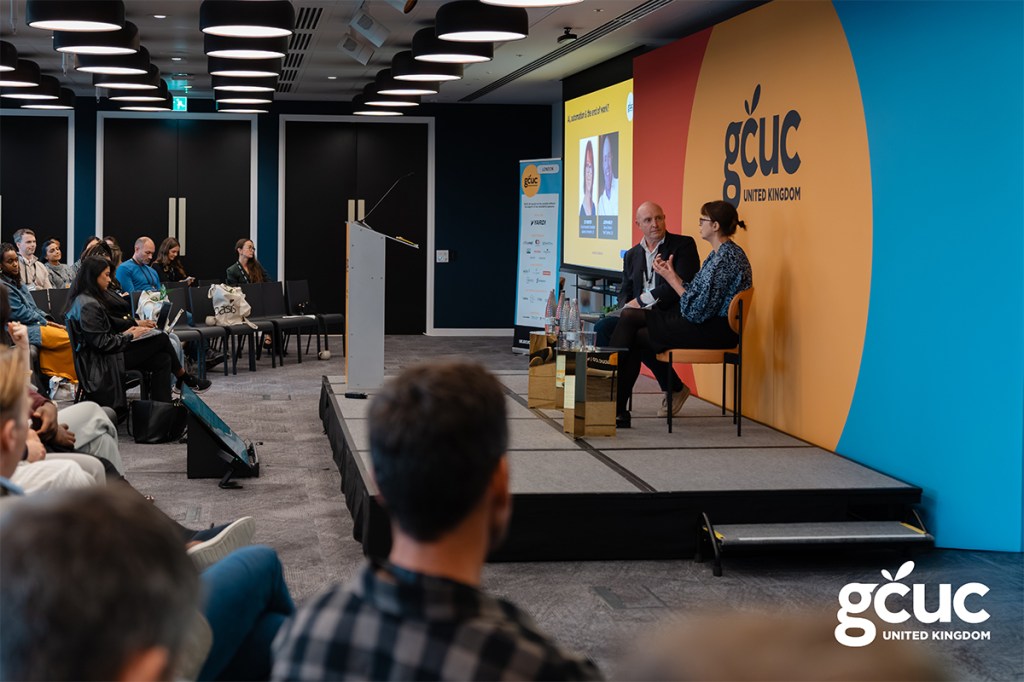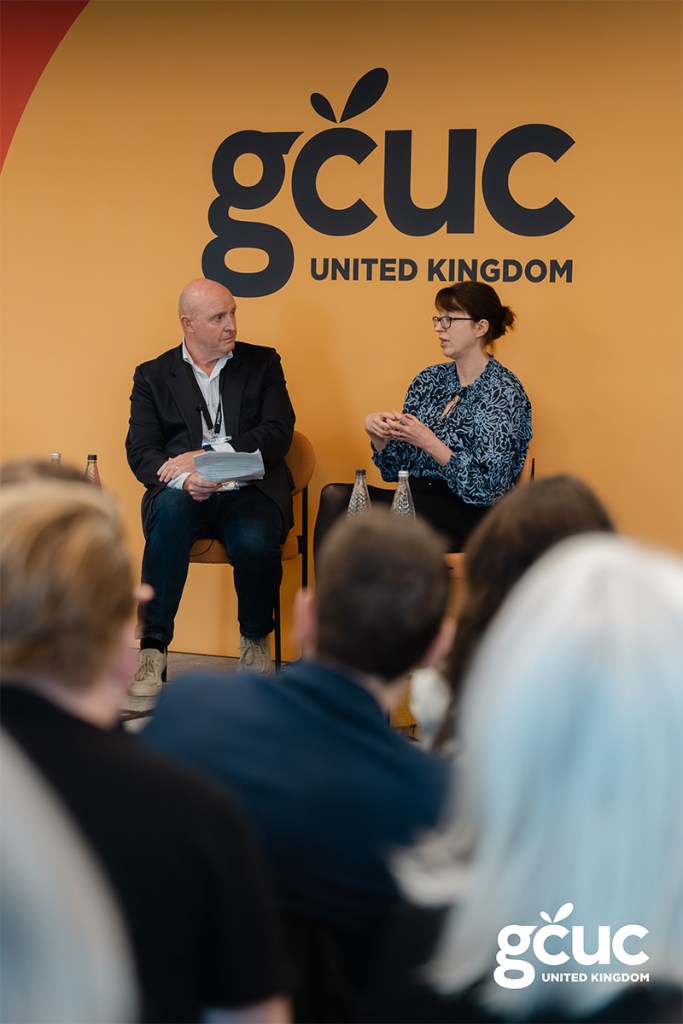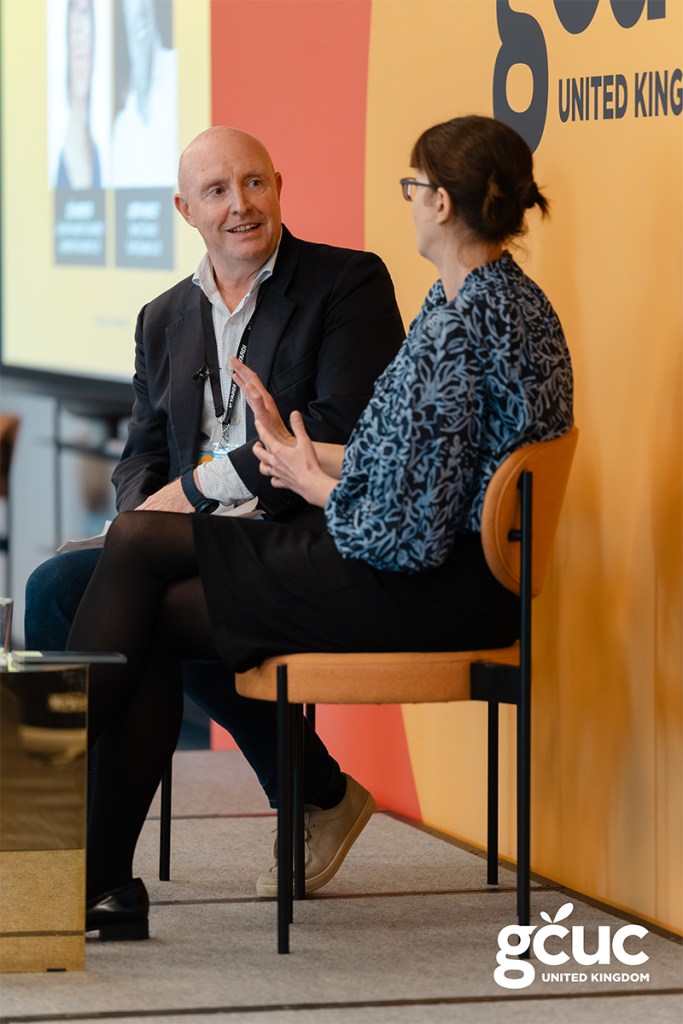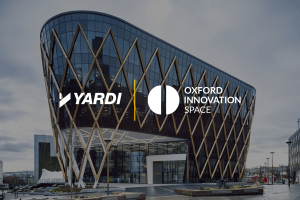How AI Is Redefining Work, Data & the Human Experience
At this year’s GCUC London conference, the discussion around the future of work took a thought-provoking turn during a fireside chat between Justin Harley, senior director for Yardi, and Zöe Webster, AI and innovation consultant at Authentic Innovation. Together, they explored how artificial intelligence is reshaping industries, workspaces and the skills required to thrive in an increasingly automated world.
The session, titled “AI, Automation and the End of Work?”, challenged attendees to look beyond the trend and instead focus on how AI can be used intentionally to enhance productivity, creativity and human potential.

Understanding the Real Adoption of AI
Webster began by grounding the conversation in reality, discussing how large-scale implementation of generative AI remains limited (with only around 5% of organisations having formally scaled such tools). But the actual transformation is happening at the individual level. Employees across industries are already integrating AI tools into their workflows, often informally, to streamline routine tasks and amplify creative output.
As Webster noted to Harley, “AI is everywhere – everyone’s talking about it, everyone’s trying it, but it’s best to practise safe AI.” Her point underlined the need for both experimentation and responsibility. The future, she suggested, lies not in blind adoption but in conscious, well-informed integration of AI into everyday processes.
Automation, Data & Workspace Evolution
Turning to the impact of AI on business models and workplace design, Harley highlighted the critical role of data in unlocking meaningful automation. “There is no AI without data,” he said. “Focus on the data that really matters – as Eddie Byrne once said, ‘Data is the north star.’”

AI, he explained, can uncover patterns and insights that humans might miss, helping organisations make smarter, faster decisions. However, both speakers agreed that technology should serve as an enabler, not a replacement. Automation should enhance human creativity and engagement, allowing professionals to focus on higher-value, strategic work.
Webster encouraged leaders to take a purpose-led approach – “Forget AI. Focus on what you want to achieve and where you want to go.” The message was clear – AI should not dictate business direction but rather support the vision organisations set for themselves.
The Human–AI Partnership
The discussion also explored the evolving relationship between humans and intelligent systems. Three key themes emerged:
- Collaboration Between People:
Teams that use AI effectively can work faster and deliver higher-quality results, combining human judgment with digital speed.
- Interactions with Machines:
AI is not replacing human workers but reshaping how they collaborate with technology, moving toward co-creation and hybrid intelligence.
- AI-Free Spaces:
As AI becomes embedded in every workflow, maintaining spaces for uninterrupted human creativity and critical thinking is essential.
Webster also emphasised the idea of “bounded freedom” – allowing people the flexibility to explore AI tools responsibly within clear ethical and operational frameworks. This balance ensures innovation continues without compromising integrity or trust.
A Measured Path Forward
The conversation closed on a note of measured optimism. Both Harley and Webster acknowledged that while AI’s capabilities are expanding rapidly, its most significant impact will come not from scale alone, but from strategic, purposeful adoption. Success in the AI era will depend on combining strong data foundations, clear ethical frameworks and a deep respect for human creativity.
Rather than viewing automation as an endpoint, the discussion positioned AI as a catalyst for reinvention, one that challenges individuals, teams and industries to rethink how value is created. The takeaway was clear – the future of work will belong to those who learn to balance innovation with intention and technology with humanity.

As Webster aptly summarised, “AI can do a lot of useful things, but it cannot do everything; it can only function in the digital space with zeros and ones.” It is in that space, between digital capability and human imagination, that the real future of work will unfold.
Strengthen your Data Foundation with Yardi Kube
AI is undoubtedly going to change much about the way we all work, and workspaces must adopt software that enables them to be ready for these transformative tools. Yardi Kube’s all-in-one workspace management software prioritises data integrity alongside seamless operational and accounting tools, allowing your business to be AI-ready and utilise it to its full potential.
Find out more and speak to a member of our team about how Yardi Kube can benefit your flexible workspace business.
Stay connected with us by following Yardi Kube on LinkedIn.




